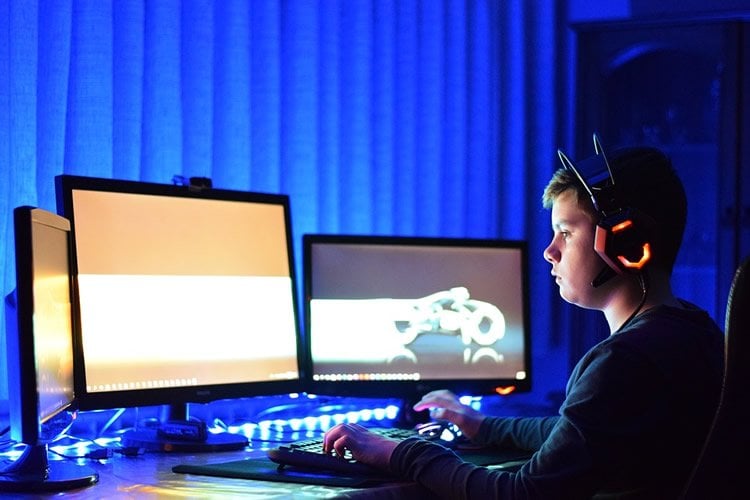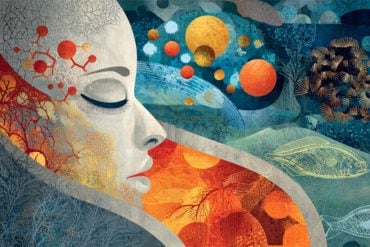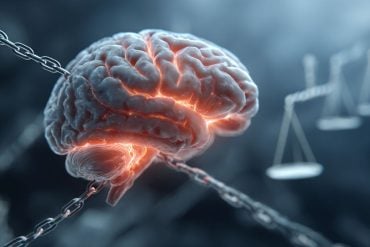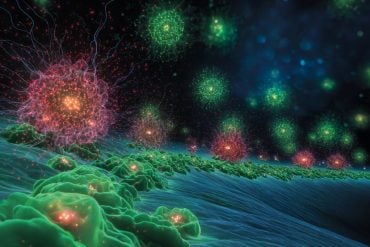Summary: Gene expression is influence by gamers’ degree of social connectedness to others, researchers report. For those with online gaming addiction, the gene expression can lead to chronic stress.
Source: Wiley.
When researchers looked at expression of a particular gene complex that is activated by chronic stress, they found differences depending on whether someone was positively engaging in video games or were problematic gamers.
For the American Journal of Human Biology study, investigators studied 56 people who play video games and compared those with positive and negative scores on a measure of social/psychological health related to gaming.
The study advances researchers’ understanding of the “psychobiology” of play, demonstrating the association of negatively experienced internet play with biological measures of chronic threat, uncertainty, and distress.
“Our study finds that healthy gaming experiences are detectable in the body at the molecular level, with more favorable profiles of inflammatory and antiviral gene expression in immune cells from players who experience gaming as engaging rather than addictive,” said lead author Dr. Jeffrey Snodgrass, of Colorado State University. “One striking finding is the way the gene expression results are influenced by gamers’ relative degree of social connectedness to others. This is consistent with the idea that more problematic patterns of online play are importantly interrelated with the characteristic stress and distress of social isolation and loneliness.”

The World Health Organization recently announced “gaming disorder” as a new mental health condition included in the 11th edition of its International Classification of Diseases
Source: Penny Smith – Wiley
Publisher: Organized by NeuroscienceNews.com.
Image Source: NeuroscienceNews.com image is in the public domain.
Original Research: Abstract for “Social genomics of healthy and disordered internet gaming” by Jeffrey G. Snodgrass, H. J. François Dengah II, Michael G. Lacy, Robert J. Else, Evan R. Polzer Jesusa M. G. Arevalo, and Steven W. Cole in American Journal of Human Biology. Published June 20 2018.
doi:10.1002/ajhb.23146
[cbtabs][cbtab title=”MLA”]Wiley “The Psychobiology of Online Gaming.” NeuroscienceNews. NeuroscienceNews, 21 June 2018.
<https://neurosciencenews.com/gaming-psychobiology-9415/>.[/cbtab][cbtab title=”APA”]Wiley (2018, June 21). The Psychobiology of Online Gaming. NeuroscienceNews. Retrieved June 21, 2018 from https://neurosciencenews.com/gaming-psychobiology-9415/[/cbtab][cbtab title=”Chicago”]Wiley “The Psychobiology of Online Gaming.” https://neurosciencenews.com/gaming-psychobiology-9415/ (accessed June 21, 2018).[/cbtab][/cbtabs]
Abstract
Social genomics of healthy and disordered internet gaming
Objectives
To combine social genomics with cultural approaches to expand understandings of the somatic health dynamics of online gaming, including in the controversial nosological construct of internet gaming disorder (IGD).
Methods
In blood samples from 56 U.S. gamers, we examined expression of the conserved transcriptional response to adversity (CTRA), a leukocyte gene expression profile activated by chronic stress. We compared positively engaged and problem gamers, as identified by an ethnographically developed measure, the Positive and Negative Gaming Experiences Scale (PNGE‐42), and also by a clinically derived IGD scale (IGDS‐SF9).
Results
CTRA profiles showed a clear relationship with PNGE‐42, with a substantial linkage to offline social support, but were not meaningfully associated with disordered play as measured by IGDS‐SF9.
Conclusions
Our study advances understanding of the psychobiology of play, demonstrating via novel transcriptomic methods the association of negatively experienced internet play with biological measures of chronic threat, uncertainty, and distress. Our findings are consistent with the view that problematic patterns of online gaming are a proxy for broader patterns of biopsychosocial stress and distress such as loneliness, rather than a psychiatric disorder sui generis, which might exist apart from gamers’ other life problems. By confirming the biological correlates of certain patterns of internet gaming, culturally‐sensitive genomics approaches such as this can inform both evolutionary theorizing regarding the nature of play, as well as current psychiatric debates about the appropriateness of modeling distressful gaming on substance addiction and problem gambling.






